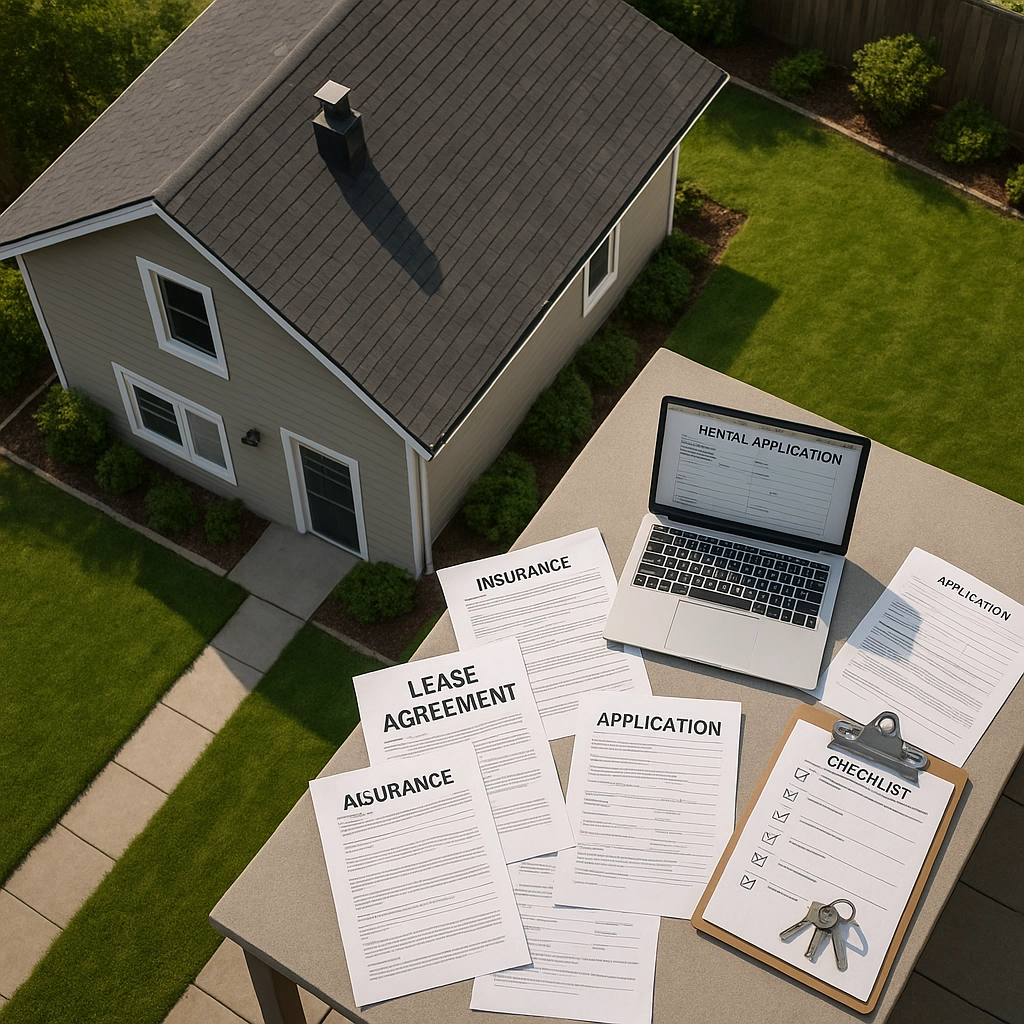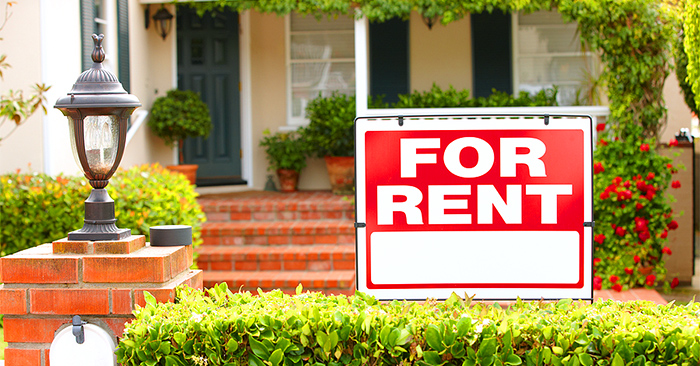Becoming an “accidental landlord” isn’t something most homeowners plan for—but in today’s shifting Oakland County market, it’s more common than you might think. High interest rates, shifting inventory, and unexpected life changes sometimes mean your home sits longer than expected, making selling at your price tough. If you’re facing slow offers (or no offers), or you need to move quickly, renting out your property can become a real solution—and not just an emergency exit.
But what exactly is an “accidental landlord”? What are the pitfalls, and how do you turn this temporary detour into a win for your finances (and sanity)? Let’s walk through all you need to know, so this accidental scenario becomes a smart move.
What Is an Accidental Landlord, and How Do You Become One?
An accidental landlord is simply a homeowner who never meant to rent their property, but ends up in the world of tenants and leases anyway. This can happen for a handful of reasons:
- Life Changes: Job relocations, divorces, or family needs might mean you have to move sooner than expected but can’t—or shouldn’t—sell.
- Market Slowdown: Maybe your home has been on the market for weeks with little traction. Rather than slash the price or pull the listing, renting out your home lets you bridge the gap and reduce carrying costs.
- Inheritance: You’ve inherited property and need time to decide whether to keep, sell, or let it go. Renting buys you breathing room (and covers those new expenses).
- Negative Equity: If selling now would mean taking a loss, turning the home into an investment property can keep you afloat until the market improves.

Bottom Line: If you suddenly find yourself with a house you can’t (or shouldn’t) sell, the road to landlord-hood might be right in your driveway.
Accidental Landlord Traps: What Could Go Wrong?
Let’s be honest: being a landlord is not just about collecting checks. There’s real work (and risk) involved, especially if you jumped in without a plan. Here are the most common pitfalls accidental landlords face:
- Lack of Tenant Vetting: A bad tenant can cost way more than a lowball sale. Skipping background or credit checks is never worth the risk. Check out TransUnion SmartMove for landlord-friendly screening.
- Improper Lease Agreements: A handshake isn’t enough. Standard lease templates often miss local nuances, and Michigan has specific requirements for rental contracts. Consult the Michigan State Housing Development Authority (MSHDA) Landlord Resources for templates and legal info.
- Insurance Gaps: Regular homeowners insurance probably won’t protect you once renters are in place. You’ll need a landlord policy (dwelling/fire), and you might require tenants to have renter’s insurance.
- Ignoring Local Regulations: Oakland County (and many communities throughout Michigan) have city requirements for rental registration, yearly inspections, or lead paint disclosures. Oakland County Rental Compliance outlines what you need for our area.
- Underestimating the Commitment: Emergencies, maintenance, and rent collection don’t stop just because you’re busy or out of state. Do you have a repair crew on speed dial? Are you willing to be on-call?

How to Do Accidental Landlording the Smart Way
Okay, enough doom and gloom. Thousands of folks ride out tough real estate cycles by becoming successful landlords—often by accident! Here’s how to do it right from day one:
1. Crunch the Numbers
Calculate what your home will realistically rent for (not what you hope), and make sure it covers your mortgage, taxes, insurance, HOA fees, and maintenance. Don’t forget reserves for repairs and periods of vacancy. If the math doesn’t work, consider your other options!
Resources:
2. Screen Your Tenants Like a Pro
Credit history, background checks, employment verification, and solid references are a must. Even though time is tight, don’t skip steps. Never select a tenant just because they have the cash upfront—long-term headaches can follow.
3. Get the Right Insurance
Call your agent and switch to a landlord policy before anyone moves in. You might also check with the Insurance Information Institute for tips on essential coverages. Make it a lease requirement for your tenants to obtain renters insurance, too.
4. Use a Solid Lease Agreement
Never use a generic online lease. Michigan and Oakland County have their own rules. Consult a local attorney or use resources like NOLO’s Legal Guide for the latest landlord-tenant updates.
5. Get Familiar With Local Laws and Inspections
Your city may require inspections or rental property registration. Visit the Oakland County Community & Home Improvement for requirements. Failure to comply can mean big fines—or even getting shut down.
Should You Hire a Property Manager?
Maybe you’re moving out of state, downsizing, or just don’t want late-night phone calls about broken furnaces. In these cases, a property manager pays for themselves in peace of mind. They’ll handle:
- Marketing your property
- Tenant screening and placement
- Maintenance issues and emergencies
- Rent collection & eviction proceedings
A licensed Oakland County property manager can cost between 8-12% of monthly rent, but for many accidental landlords, that’s money well spent. Check local reviews, credentials, and interview a few before making your choice. 
Pro Tips to Protect Yourself (and Your Investment)
- Document Everything: Photos, move-in/move-out checklists, service requests, and all correspondence—keep it organized and backed up.
- Build a Trusted Service Team: From plumbers to electricians, line up reliable pros in advance so you’re not scrambling during emergencies.
- Budget for the Unexpected: HVAC, roofing, appliances—set aside at least 1-2% of the property value per year for maintenance.
- Know Your Fair Housing Rules: Michigan and federal Fair Housing Laws protect tenants from discrimination. Stay educated—HUD’s Fair Housing Overview is a great resource.
- Keep Your Emotions in Check: This is a business! Tough conversations about rent, repairs, or lease violations come with the territory.
Local and National Resources for Accidental Landlords
- Michigan State Housing Development Authority – Landlord Help
- Oakland County Community & Home Improvement
- National Association of Residential Property Managers (NARPM)
- Federal Fair Housing Information
And locally, don’t forget you can connect with experienced Oakland County real estate professionals (like me!) for advice, connections, and support. Contact Tom Gilliam for a no-pressure consult about your options.
Common Q&A: Accidental Landlord Edition
Q: What if my tenant stops paying rent?
A: Michigan law has strict protocols for late payments and eviction. Always document everything, and follow the legal process. Consider legal counsel if needed. The Michigan Courts website provides guidance.
Q: Will renting impact my ability to sell down the road?
A: Not necessarily. Well-maintained rental properties can appeal to investors or buyers seeking a move-in-ready home. However, you may need to coordinate showings around your tenant’s schedule—give proper notice as required by law.
Q: What about taxes?
A: Rental income must be reported on your tax return, but you can deduct many expenses. For in-depth questions, consult a CPA familiar with Michigan real estate. Check IRS’s Rental Income and Expenses Guide.
Q: Should I allow pets?
A: Pet-friendly rentals have a larger applicant pool, but consider higher security deposits and a strong pet policy to protect your investment.
Ready to Navigate the Market? I’ve Got Your Back.
If you find yourself as an “accidental landlord,” you’re not alone, and you don’t have to wing it. With the right prep (and maybe the right pros in your corner), this can be more opportunity than obstacle.
Want a local rental analysis, need help screening tenants, or curious about how this route fits your bigger real estate plans? Reach out today or browse my Oakland County real estate resources for insider tips, no-stress guidance, and plenty of support.
Remember: In real estate, even the unexpected can be turned into a win!




